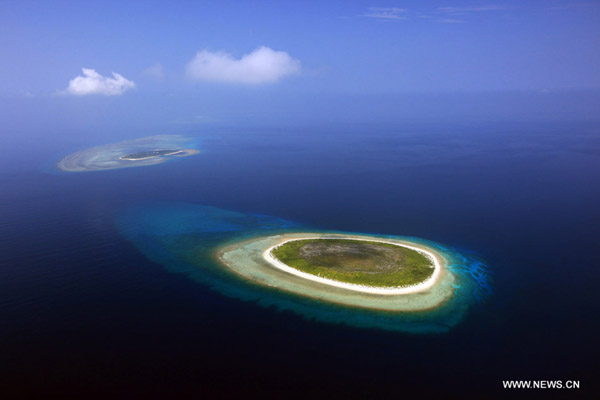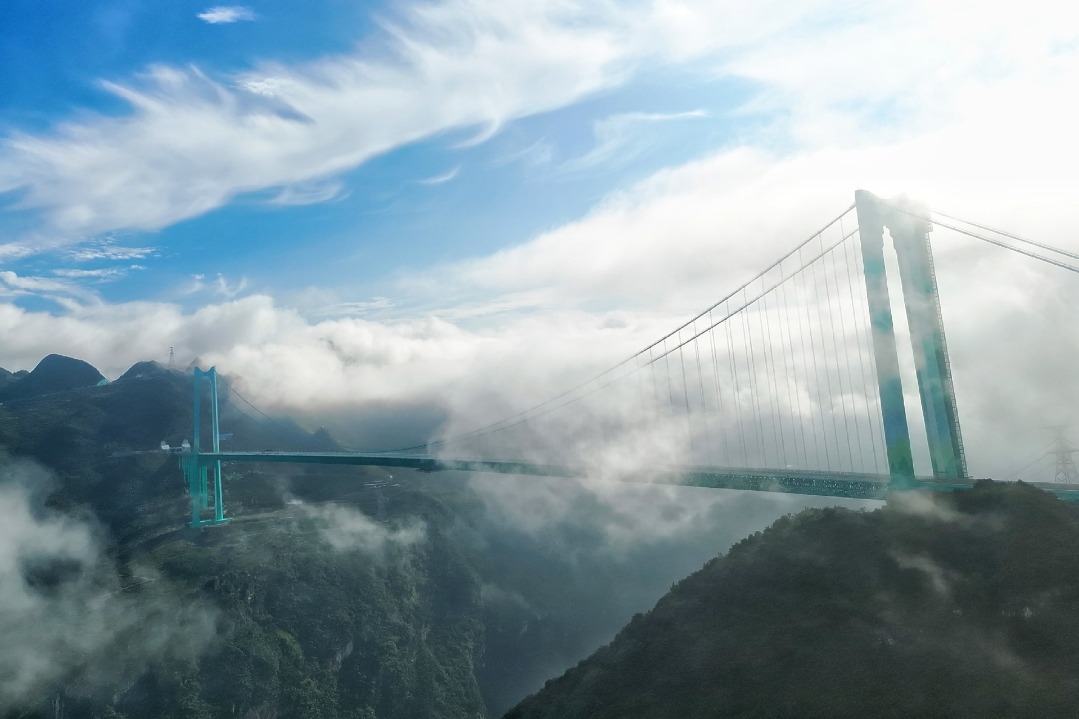West's ulterior motives hyping China's Maritime Traffic Safety Law


On September 1, China's revised Maritime Traffic Safety Law came into force. This is a new initiative from China to promote law-based maritime governance as the country deepens its reform and opening-up and advances the rule of law in a comprehensive way.
Since its amendment, the law has attracted due international attention. But the defense departments of the US and Australia have gone out of their way to associate this legislation with the issue of "freedom of navigation" in the South China Sea.
Some Western media outlets have hyped up this amendment as China's way to strengthen its claims in the South China Sea. They have even argued that some provisions in the law could enhance the risks of maritime conflicts. Such narrow-minded views and unfounded speculations indicate the inherent bias of the West that have always viewed China through tinted glasses in recent years.
Like always, they abuse the concept of "freedom of navigation" and smear China according to their own understanding on maritime issues. This is the case with China's Coast Guard Law, so is with the Maritime Traffic Safety Law. Maritime traffic safety, an integral part of the maritime governance, is related to passenger and cargo safety and transportation order. It is also closely associated with maritime resources exploitation, environmental protection, life rescue at sea and other maritime governance issues.
Starting with the Maritime Traffic Safety Law in 1984, China has gradually put in place a basic framework and system of maritime traffic safety management. With the adoption of a marine power, a strong transportation country strategy and the progress in building the 21st Century Maritime Silk Road, China has found that its existing laws and regulations can hardly meet new trends and new requirements in maritime traffic safety as well as maritime and shipping governance.
As a major maritime and shipping country, China faces an increasingly complex maritime traffic environment and unprecedented busy traffic in its jurisdiction - vessels and offshore installations growing in number and becoming bigger and more specialized, leading to an increase in safety risks and difficulties in management.
Several problems have come up in the enforcement of the previous edition of the Maritime Traffic Safety Law. These include a less than clear legal basis, unspecific rules and regulations, and hard-to-enforce regulatory measures. This is why amendments are needed to address new issues under new circumstances.
China is the world's second-largest economy and the largest trader in goods. Its port throughput ranking is No.1 in the world. For China, maritime traffic safety has been extended from production safety to economic security and strategic security which are more international and external. It goes without saying that China's efforts to maintain maritime traffic safety can make a substantial contribution to uphold the normal order of international shipping. It can also help the sound and stable development of international shipping industry. In this sense, China's revision of the Maritime Traffic Safety Law is a step forward in building a high-quality regulatory and services system of maritime traffic. It is also an important move with domestic legislation to improve the international system of maritime rules and participate in global ocean governance.
Since 1989, China has been reelected as Category A member state to the International Maritime Organization (IMO) for 16 times. Up to now, China has signed up to various international maritime conventions and related intergovernmental agreements involving the obligations of contracting parties, flag states and coastal states in more than 700 matters.
The newly amended Maritime Traffic Safety Law has systematically translated the contents of a series of international maritime conventions concluded or acceded to by China into domestic law. This is done to realize a proper alignment and harmonization of domestic law and international law. It demonstrates to the international community China's position and commitment to fully fulfill its treaty obligations, participate in international maritime cooperation, maintain the order of ocean shipping, and provide relevant international public goods.
China's Maritime Traffic Safety Law stipulates that submersibles, nuclear-powered ships, and foreign ships carrying radioactive substances or other toxic and harmful substances shall report to the maritime authorities when entering or leaving China's territorial waters. This provision has nothing to do with the issue of "freedom of navigation" as claimed by the US and Australia.
According to the United Nations Convention on the Law of the Sea (UNCLOS), the coastal state may adopt laws and regulations on navigation safety, maritime traffic management, preservation of the environment, and prevention and control of pollution in the waters under its sovereign jurisdiction.
Although it does not expressly require foreign submarines and other submersibles to report their entry into the territorial sea to the coastal state, UNCLOS does not exclude ipso facto the right of the coastal state to take appropriate measures that are consistent with the spirit of UNCLOS when necessary. This must be done to protect its interests in peace and security. UNCLOS stipulates that tankers, nuclear-powered ships and ships carrying nuclear or other inherently dangerous or noxious substances or materials may be required by the coastal state to confine their passage to designated or prescribed sea lanes. The provisions of the Maritime Traffic Safety Law stipulate that such ships shall report to the maritime authorities. This does not contradict the spirit of the UNCLOS provisions. Instead, it makes administrative measures more operational and specific.
In terms of international practice, many countries have introduced regulations on specific types of foreign ships into and out of their territorial waters in accordance with UNCLOS. This is done in order to uphold national security, maintain the order of sea lanes and protect the marine environment. For example, 16 countries including New Zealand, Egypt, Malaysia, Romania, Maldives, Saudi Arabia, Malta, Mexico and Iran require nuclear-powered ships or ships carrying radioactive substances get approval before they enter their territorial waters. Countries such as the UAE and Pakistan require nuclear-powered ships or ships carrying radioactive substances to make notifications before they enter their territorial waters. France and Slovenia require ships carrying radioactive substances to navigate in prescribed or separate channels.
As for the freedom of navigation, it is by no means a self-evident legal concept. Its existence is based on the legal status of the sea area in which the navigation activity takes place. In the territorial sea under the sovereign jurisdiction of the coastal state, foreign ships enjoy the right of navigation. This includes the right of innocent passage; namely foreign ships only enjoy "freedom of navigation" in the sea area beyond the sovereign jurisdiction of the coastal state. This difference of expression is closely related to the different legal status of the sea areas in which the navigational activities take place.
The legal framework of the sea established by UNCLOS is based on the division of sea areas into different legal status. The determination of the legal status of sea areas and the rights and obligations of states within each area, including the regime of navigation, represents a delicate balance that has been achieved directly by agreement between the parties.
The right of foreign ships to navigate in the sea areas under the sovereign jurisdiction of the coastal state is not derived from freedom of navigation. The claim that such right of navigation is equivalent to freedom of navigation will obviously undermine the rights of the coastal state. It will hence upset the balance of rights and obligations between the coastal state and other states.
A small number of states are attempting to generalize the concept of "freedom of navigation" based on geopolitical considerations or to exert unilateral influence on the interpretation of UNCLOS and the evolution of customary international law through freedom of navigation operations. This will not bridge the differences between the parties in the interpretation and application of UNCLOS. Instead, it may affect or even undermine the authority and integrity of the international law system.
Ding Duo is deputy director of the National Institute for South China Sea Studies' Research Centre for Oceans Law and Policy in Hainan, China, and non-resident Research Fellow of the Institute for China-America Studies (ICAS) in Washington, DC.


































